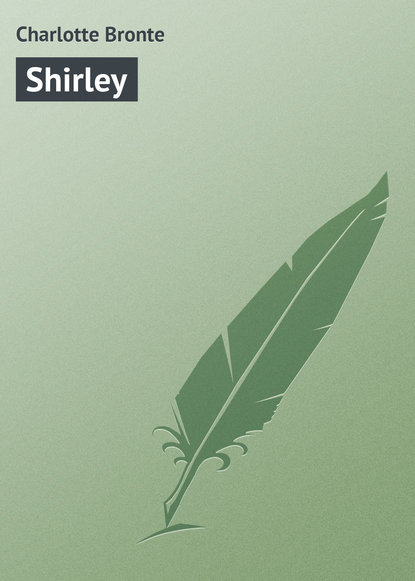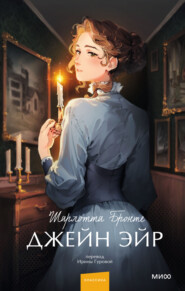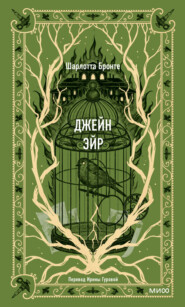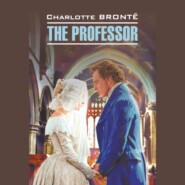По всем вопросам обращайтесь на: info@litportal.ru
(©) 2003-2024.
✖
Shirley
Настройки чтения
Размер шрифта
Высота строк
Поля
“Yes; once.”
“What sort of a companion is he on these occasions?”
“A cousin, you know, is different to a stranger.”
“I am aware of that; but cousins, if they are stupid, are still more insupportable than strangers, because you cannot so easily keep them at a distance. But your cousin is not stupid?”
“No; but”
“Well?”
“If the company of fools irritates, as you say, the society of clever men leaves its own peculiar pain also. Where the goodness or talent of your friend is beyond and above all doubt, your own worthiness to be his associate often becomes a matter of question.”
“Oh! there I cannot follow you. That crotchet is not one I should choose to entertain for an instant. I consider myself not unworthy to be the associate of the best of them – of gentlemen, I mean – though that is saying a great deal. Where they are good, they are very good, I believe. Your uncle, by-the-bye, is not a bad specimen of the elderly gentleman. I am always glad to see his brown, keen, sensible old face, either in my own house or any other. Are you fond of him? Is he kind to you? Now, speak the truth.”
“He has brought me up from childhood, I doubt not, precisely as he would have brought up his own daughter, if he had had one; and that is kindness. But I am not fond of him. I would rather be out of his presence than in it.”
“Strange, when he has the art of making himself so agreeable.”
“Yes, in company; but he is stern and silent at home. As he puts away his cane and shovel hat in the rectory hall, so he locks his liveliness in his bookcase and study desk: the knitted brow and brief word for the fireside; the smile, the jest, the witty sally for society.”
“Is he tyrannical?”
“Not in the least. He is neither tyrannical nor hypocritical. He is simply a man who is rather liberal than good-natured, rather brilliant than genial, rather scrupulously equitable than truly just – if you can understand such superfine distinctions.”
“Oh yes! Good-nature implies indulgence, which he has not; geniality, warmth of heart, which he does not own; and genuine justice is the offspring of sympathy and considerateness, of which, I can well conceive, my bronzed old friend is quite innocent.”
“I often wonder, Shirley, whether most men resemble my uncle in their domestic relations; whether it is necessary to be new and unfamiliar to them in order to seem agreeable or estimable in their eyes; and whether it is impossible to their natures to retain a constant interest and affection for those they see every day.”
“I don’t know. I can’t clear up your doubts. I ponder over similar ones myself sometimes. But, to tell you a secret, if I were convinced that they are necessarily and universally different from us – fickle, soon petrifying, unsympathizing – I would never marry. I should not like to find out that what I loved did not love me, that it was weary of me, and that whatever effort I might make to please would hereafter be worse than useless, since it was inevitably in its nature to change and become indifferent. That discovery once made, what should I long for? To go away, to remove from a presence where my society gave no pleasure.”
“But you could not if you were married.”
“No, I could not. There it is. I could never be my own mistress more. A terrible thought! It suffocates me! Nothing irks me like the idea of being a burden and a bore – an inevitable burden, a ceaseless bore! Now, when I feel my company superfluous, I can comfortably fold my independence round me like a mantle, and drop my pride like a veil, and withdraw to solitude. If married, that could not be.”
“I wonder we don’t all make up our minds to remain single,” said Caroline. “We should if we listened to the wisdom of experience. My uncle always speaks of marriage as a burden; and I believe whenever he hears of a man being married he invariably regards him as a fool, or, at any rate, as doing a foolish thing.”
“But, Caroline, men are not all like your uncle. Surely not. I hope not.”
She paused and mused.
“I suppose we each find an exception in the one we love, till we are married,” suggested Caroline.
“I suppose so. And this exception we believe to be of sterling materials. We fancy it like ourselves; we imagine a sense of harmony. We think his voice gives the softest, truest promise of a heart that will never harden against us; we read in his eyes that faithful feeling – affection. I don’t think we should trust to what they call passion at all, Caroline. I believe it is a mere fire of dry sticks, blazing up and vanishing. But we watch him, and see him kind to animals, to little children, to poor people. He is kind to us likewise, good, considerate. He does not flatter women, but he is patient with them, and he seems to be easy in their presence, and to find their company genial. He likes them not only for vain and selfish reasons, but as we like him – because we like him. Then we observe that he is just, that he always speaks the truth, that he is conscientious. We feel joy and peace when he comes into a room; we feel sadness and trouble when he leaves it. We know that this man has been a kind son, that he is a kind brother. Will anyone dare to tell me that he will not be a kind husband?”
“My uncle would affirm it unhesitatingly. ‘He will be sick of you in a month,’ he would say.”
“Mrs. Pryor would seriously intimate the same.”
“Mrs. Yorke and Miss Mann would darkly suggest ditto.”
“If they are true oracles, it is good never to fall in love.”
“Very good, if you can avoid it.”
“I choose to doubt their truth.”
“I am afraid that proves you are already caught.”
“Not I. But if I were, do you know what soothsayers I would consult?”
“Let me hear.”
“Neither man nor woman, elderly nor young: the little Irish beggar that comes barefoot to my door; the mouse that steals out of the cranny in the wainscot; the bird that in frost and snow pecks at my window for a crumb; the dog that licks my hand and sits beside my knee.”
“Did you ever see anyone who was kind to such things?”
“Did you ever see anyone whom such things seemed instinctively to follow, like, rely on?”
“We have a black cat and an old dog at the rectory. I know somebody to whose knee that black cat loves to climb, against whose shoulder and cheek it likes to purr. The old dog always comes out of his kennel and wags his tail, and whines affectionately when somebody passes.”
“And what does that somebody do?”
“He quietly strokes the cat, and lets her sit while he conveniently can; and when he must disturb her by rising, he puts her softly down, and never flings her from him roughly. He always whistles to the dog and gives him a caress.”
“Does he? It is not Robert?”
“But it is Robert.”
“Handsome fellow!” said Shirley, with enthusiasm. Her eyes sparkled.
“Is he not handsome? Has he not fine eyes and well-cut features, and a clear, princely forehead?”
“He has all that, Caroline. Bless him! he is both graceful and good.”
“I was sure you would see that he was. When I first looked at your face I knew you would.”
“I was well inclined to him before I saw him. I liked him when I did see him. I admire him now. There is charm in beauty for itself, Caroline; when it is blent with goodness, there is a powerful charm.”
“When mind is added, Shirley?”
“Who can resist it?”
“Remember my uncle, Mesdames Pryor, Yorke, and Mann.”
“Remember the croaking of the frogs of Egypt. He is a noble being. I tell you when they are good they are the lords of the creation – they are the sons of God. Moulded in their Maker’s image, the minutest spark of His spirit lifts them almost above mortality. Indisputably, a great, good, handsome man is the first of created things.”
“Above us?”

















